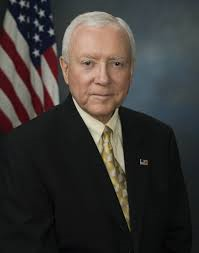
Senator Hatch, Alexander, Corker, Whitehouse Introduce Bipartisan, Bicameral Legislation to Allow Songwriters to Receive Fair Pay
WASHINGTON, March 4, 2015 – U.S. Senators Orrin Hatch, R-Utah, Lamar Alexander, R-Tenn, Bob Corker, R-Tenn, and Sheldon Whitehouse, D-RI, along with U.S. Rep. Doug Collins (R-Ga.) of the House Judiciary Committee and Rep. Hakeem Jeffries, R-NY, today introduced legislation that would allow songwriters to receive compensation based on the fair market value of their songs.
The Songwriter Equity Act would amend federal law to allow songwriters to receive market-based compensation and would remove government price controls.
Sen. Hatch said, “The music business is among the toughest and most competitive industries, and our songwriters and composers should not have to accept below-market rates for their work. Ensuring that they are able to receive the fair market value for their songs is the right thing to do.”
“Italy has its art, Egypt has its pyramids, Napa Valley has its wines and Nashville has its songwriters,” said Sen. Alexander. “Songwriters are the lifeblood of Music City, and their paychecks ought to be based on the fair market value of their songs – so that when they write a hit heard around the world, you can see it in their billfolds. My hope is that in this new Congress, we will pass this legislation to help give our nation’s songwriters the fair pay they have earned.”
“Music showcases the incredible talent and vision of Tennesseans - its songwriters, musicians, and small and large businesses - across the country and around the world,” said Sen. Corker. “Unfortunately, it’s easy for some to forget the countless people who bring to life the music we enjoy each day. We turn the knob, hit the button, click the mouse, and our favorite songs are there. As technology advances, it’s important that we remember where the music begins and modernize the way songwriters are compensated for their work.”
“Rhode Island’s vibrant artistic community has produced many talented songwriters,” said Sen. Whitehouse. “Unfortunately, some of these songwriters are not currently compensated fairly. The Songwriter Equity Act will help ensure that songwriters finally receive market-based compensation for their work.”
Rep. Collins said, “In my home state of Georgia alone, there are close to 50,000 songwriters who have dedicated their lives to a talent and a calling that, in my view, God gave them. It is critical to ensure that songwriters – the engines that drive the music industry – are compensated fairly for their work. Copyright laws were never intended to create barriers to creativity that forces songwriters to sell their intellectual property at below-market rates. Congress should write laws that not only promote creation and pay creators, but also remain relevant even in times of rapid technological change. The Songwriter Equity Act is a vital step toward a music licensing system built on free market principles and fair compensation to creators. ”
“The Songwriter Equity Act is a balanced effort and a strong step in the right direction to ensure that America's artists are fairly compensated for the fruits of their labor,” Rep. Jeffries said. “The protection of intellectual property is a constitutional charge that is essential for the continued vitality of the United States economy. Songwriters are quintessential small business entrepreneurs whose creativity is an essential part of the music ecosystem. They deserve our protection. I am thankful for the leadership of Rep. Collins, Senator Whitehouse, Senator Hatch and Senator Alexander, and look forward to working together to ensure passage of this important legislation.”
Background
When a songwriter’s copyrighted composition is reproduced and distributed (by download or CD), federal law requires that the songwriter be compensated. The rate of compensation is set by the Copyright Royalty Board and has increased by only 7 cents, over 100 years, to 9.1 cents per song, an amount far below the going market rate.
When a songwriter’s composition is performed publicly, however, federal law establishes a separate right to compensation. Songwriters may negotiate a licensing rate directly, but most contract with performance rights organizations such as ASCAP and BMI, which negotiate and collect royalties on a songwriter’s behalf. If an agreement cannot be reached between the performance rights organization and the licensee, either party may turn to the federal rate court to set compensation.
The Problem –
The Copyright Royalty Board currently sets compensation for music downloads and CDs far below the going market rate.
Section 114(i) of the Copyright Act imposes a price control for public performances of songwriter compositions by prohibiting the federal rate court from considering certain evidence, such as the performing artist’s level of compensation, when it sets songwriter compensation for a public performance.
The Solution –
The Songwriter Equity Act: